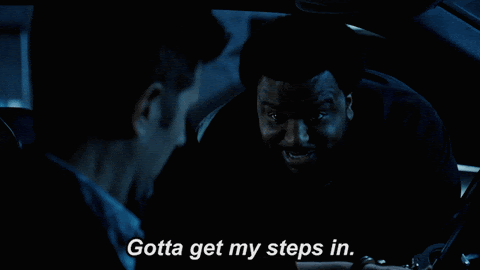What's Next: Is AB51 Destined for SCOTUS? + Choice Words for Prosecutors in Jawbone-Fitbit Spat + Judges Curb Jail Time for Refusing to Decrypt a Device
Employment lawyers are sharing their predictions for the future of California's mandatory arbitration law.
February 19, 2020 at 07:30 AM
8 minute read
Welcome back for another week of What's Next, where we report on the intersection of law and technology. Here's what we've got for you this week:
>> Employment lawyers share their predictions for the future of California's mandatory arbitration law.
>> Federal prosecutors drop charges against Fitbit.
>> Confinement for failure to comply with encryption has a cap.
Let's chat: Email me at [email protected] and follow me on Twitter at @a_lancaster.
 Judge Kimberly Mueller, U.S. District Court for the Eastern District of California.
Judge Kimberly Mueller, U.S. District Court for the Eastern District of California.
Will California's Fight over Mandatory Arbitration Reach SCOTUS?
Just one month after California's Assembly Bill 51 took effect, U.S. District Judge Kimberly Mueller in the Eastern District of California granted a preliminary injunction to the U.S. Chamber of Commerce and other business groups blocking enforcement of the law. The interest groups, repped by Mayer Brown and Littler Mendelson, could be gearing up for a lengthy battle with California over AB51, which bars employers from requiring workers to agree to arbitration as a condition of employment.
"I think what will happen is this could go all the way to the Supreme Court," said Diane O'Malley of Hanson Bridgett in San Francisco.
Now that the court has batted away California's arguments that the plaintiffs don't have standing as industry associations, the state has to prove likelihood of success on the merits, O'Malley said.
She doesn't expect to see a massive response from Silicon Valley over the mandatory arbitration agreements, like the Google agreements forcing workers to handle sexual harassment suits in arbitration that spurred an employee walk-out.
"I just don't think it's sexy enough to get all that attention," O'Malley said. "This action comes so quickly after the law went into effect, and employers are feeling safe for now. I don't think we're going to see a lot of lawsuits in response."
In the meantime, O'Malley advises clients to keep their arbitration agreements in place if they think arbitration is the way to go for them.
Karin Cogbill of Hopkins & Carley in San Jose said the fight may also play out in the Legislature. Lawmakers might try to repeal AB51 to pass a different statute that addresses the court's concerns and circumvents plaintiffs' preemption arguments under the Federal Arbitration Act, she said. A new law might clarify that "each and every provision of an employment contract must be consented to voluntarily," as Mueller suggested in her Feb. 7 order.
Cogbill said now's a good time to review the language and procedures of administering arbitration agreements to make sure they can withstand scrutiny.
"Even with the preliminary injunction in place, we can expect employees to continue to challenge the enforceability of individual arbitration agreements on general contract defenses," she said.

Feds Walk Back Charges Over Jawbone-Fitbit Trade Secret Spat
In a rare move, the U.S. Attorney's Office for the Northern District of California withdrew its charges against four people accused of taking trade secrets from defunct fitness tracking company Jawbone to Fitbit.
As of Friday, the office dropped charges against Jawbone alums Patrick Narron, Patricio Romano, Rong Zhang and Jing Qui Weiden. Prosecutors decided to drop charges against design and user researcher Ana Rosario in December, and earlier this month, a jury acquitted Katherine Mogal, Jawbone's former director of market and customer experience insights.
"Our assessment of these cases led us to the firm conclusion that only an immediate dismissal of the criminal charges against all defendants would be in the interests of justice," U.S. Attorney David Anderson said in a statement.
The defense attorneys involved in the case appreciate that Anderson "did the right thing," but said the investigation was doomed from the start.
Narron's counsel, Miles Ehrlich and Amy Craig of Ramsey & Ehrlich in Berkeley, California, said, "This prosecution was deeply flawed from the get-go and should never have happened." They said anyone could have found the documents were not confidential trade secrets "with a two-minute Google search."
"Before launching a criminal case against anyone, the government must make absolutely certain that it isn't being manipulated into doing one tech company's bidding against a competitor," they said.
Miranda Kane of Kane + Kimball in Berkeley, California, a member of Mogal's trial team, said she thought some of the issues inherent to the case came from the fact that Jawbone brought their allegations directly to an investigative unit of the Department of Homeland Security, and the case required an objective and probing look.
"In this case, I don't think they performed their gatekeeper role, and when the agency doesn't do their role, it has this ripple effect," Kane said.

Decryption's Jail Time Limit
The U.S. Court of Appeals for the Third Circuit decided that witnesses can be confined for no more than 18 months for refusing to comply with decryption orders, in a precedential and split opinion issued earlier this month.
After a Philadelphia man spent more than four years in jail after he refused to decrypt a computer and hard drive suspected to contain child pornography, he motioned for a stay of a contempt order and for release citing 28 U.S.C. § 1826(a), which caps confinement for civil contempt to 18 months.
The appeals court ordered his release, disagreeing with the state and district court, which said he did not qualify as a "'witness' participating in any proceeding before or ancillary to any court or grand jury of the United States" under the statute.
The opinion, written by Third Circuit Judge Julio Fuentes, asserts that Rawls is a witness within the meaning of statute because the state is demanding testimonial information and the "statute reaches even nontestimonial acts of production."
"As is pertinent to this case, in producing the passwords needed to decrypt the external hard drives, Rawls would be acknowledging that the hard drives were in his control and that he was capable of accessing them—an act with testimonial value," Fuentes wrote.
Judge Jane Richards Roth dissented, because "the investigation here is a preliminary one—there has not yet been an indictment nor have criminal proceedings begun before the District Court or before any court, section 1826(a) does not apply and its 18-month limitation on confinement does not apply."
 Nuro's R2 car being used for grocery delivery.
Nuro's R2 car being used for grocery delivery.
On the Radar
AI Vehicles Hit the Road Earlier this month, the National Highway Traffic Safety Administration gave the greenlight to robotics company Nuro to begin rolling out its autonomous vehicles without the typical safety features human drivers rely on, such as side mirrors and windshields. Law experts say the agency's requirements for Nuro gives the industry a good idea on what might be expected of them down the road. "Even if it doesn't apply specifically to the design of the vehicle they're planning to put out, it's an extremely useful guidance of what the likely requirements would be for the company to release an autonomous vehicle," said Honigman data security and privacy litigation partner and co-leader Steven Wernikoff. Read more from Victoria Hudgins here.
Amazon's Early Cloud Contract Win A Federal Claims Court judge handed Amazon a preliminary injunction prohibiting the U.S. Department of Defense from moving forward with a $10 billion cloud-computing contract with Google. Amazon's Morrison & Foerster attorneys argued that President Donald Trump's own public statements prove the administration sought to "screw Amazon" out of the contract. Read more from Mike Scarcella here.
FTC Gets a Grilling The Federal Trade Commission had to answer to a scrutinizing panel of federal judges on the agency's Qualcomm antitrust win. The U.S. Court of Appeals for the Ninth Circuit heard Qualcomm's appeal of the antitrust ruling over its chip licensing policies and appeared ready to overturn, at least in part, the decision that found the company had monopolized the market. Ninth Circuit Judge Consuelo Callahan asked if Qualcomm's departure from the industry standard when it comes to licensing "is anticompetitive, or is that just being a disruptor?" Read more from Scott Graham here.
Thanks for reading. We will be back next week with more What's Next.
This content has been archived. It is available through our partners, LexisNexis® and Bloomberg Law.
To view this content, please continue to their sites.
Not a Lexis Subscriber?
Subscribe Now
Not a Bloomberg Law Subscriber?
Subscribe Now
NOT FOR REPRINT
© 2025 ALM Global, LLC, All Rights Reserved. Request academic re-use from www.copyright.com. All other uses, submit a request to [email protected]. For more information visit Asset & Logo Licensing.
You Might Like
View All

What's Next: Judge to Quash Twitter Subpoena | SCOTUS Won't Review Trial Ban
4 minute read

Trending Stories
- 1Church of Scientology Set to Depose Phila. Attorney in Sexual Abuse Case
- 2An AG Just Specified How AI Could Get You in Hot Water
- 3Supreme Court Appears to Lean Toward Letting TikTok Ban Take Effect
- 4Standing Spat: Split 2nd Circuit Lets Challenge to Pfizer Diversity Program Proceed
- 5Judge Jablonski and Chief Justice Rabner Both Acted Completely Properly
Who Got The Work
Michael G. Bongiorno, Andrew Scott Dulberg and Elizabeth E. Driscoll from Wilmer Cutler Pickering Hale and Dorr have stepped in to represent Symbotic Inc., an A.I.-enabled technology platform that focuses on increasing supply chain efficiency, and other defendants in a pending shareholder derivative lawsuit. The case, filed Oct. 2 in Massachusetts District Court by the Brown Law Firm on behalf of Stephen Austen, accuses certain officers and directors of misleading investors in regard to Symbotic's potential for margin growth by failing to disclose that the company was not equipped to timely deploy its systems or manage expenses through project delays. The case, assigned to U.S. District Judge Nathaniel M. Gorton, is 1:24-cv-12522, Austen v. Cohen et al.
Who Got The Work
Edmund Polubinski and Marie Killmond of Davis Polk & Wardwell have entered appearances for data platform software development company MongoDB and other defendants in a pending shareholder derivative lawsuit. The action, filed Oct. 7 in New York Southern District Court by the Brown Law Firm, accuses the company's directors and/or officers of falsely expressing confidence in the company’s restructuring of its sales incentive plan and downplaying the severity of decreases in its upfront commitments. The case is 1:24-cv-07594, Roy v. Ittycheria et al.
Who Got The Work
Amy O. Bruchs and Kurt F. Ellison of Michael Best & Friedrich have entered appearances for Epic Systems Corp. in a pending employment discrimination lawsuit. The suit was filed Sept. 7 in Wisconsin Western District Court by Levine Eisberner LLC and Siri & Glimstad on behalf of a project manager who claims that he was wrongfully terminated after applying for a religious exemption to the defendant's COVID-19 vaccine mandate. The case, assigned to U.S. Magistrate Judge Anita Marie Boor, is 3:24-cv-00630, Secker, Nathan v. Epic Systems Corporation.
Who Got The Work
David X. Sullivan, Thomas J. Finn and Gregory A. Hall from McCarter & English have entered appearances for Sunrun Installation Services in a pending civil rights lawsuit. The complaint was filed Sept. 4 in Connecticut District Court by attorney Robert M. Berke on behalf of former employee George Edward Steins, who was arrested and charged with employing an unregistered home improvement salesperson. The complaint alleges that had Sunrun informed the Connecticut Department of Consumer Protection that the plaintiff's employment had ended in 2017 and that he no longer held Sunrun's home improvement contractor license, he would not have been hit with charges, which were dismissed in May 2024. The case, assigned to U.S. District Judge Jeffrey A. Meyer, is 3:24-cv-01423, Steins v. Sunrun, Inc. et al.
Who Got The Work
Greenberg Traurig shareholder Joshua L. Raskin has entered an appearance for boohoo.com UK Ltd. in a pending patent infringement lawsuit. The suit, filed Sept. 3 in Texas Eastern District Court by Rozier Hardt McDonough on behalf of Alto Dynamics, asserts five patents related to an online shopping platform. The case, assigned to U.S. District Judge Rodney Gilstrap, is 2:24-cv-00719, Alto Dynamics, LLC v. boohoo.com UK Limited.
Featured Firms
Law Offices of Gary Martin Hays & Associates, P.C.
(470) 294-1674
Law Offices of Mark E. Salomone
(857) 444-6468
Smith & Hassler
(713) 739-1250








